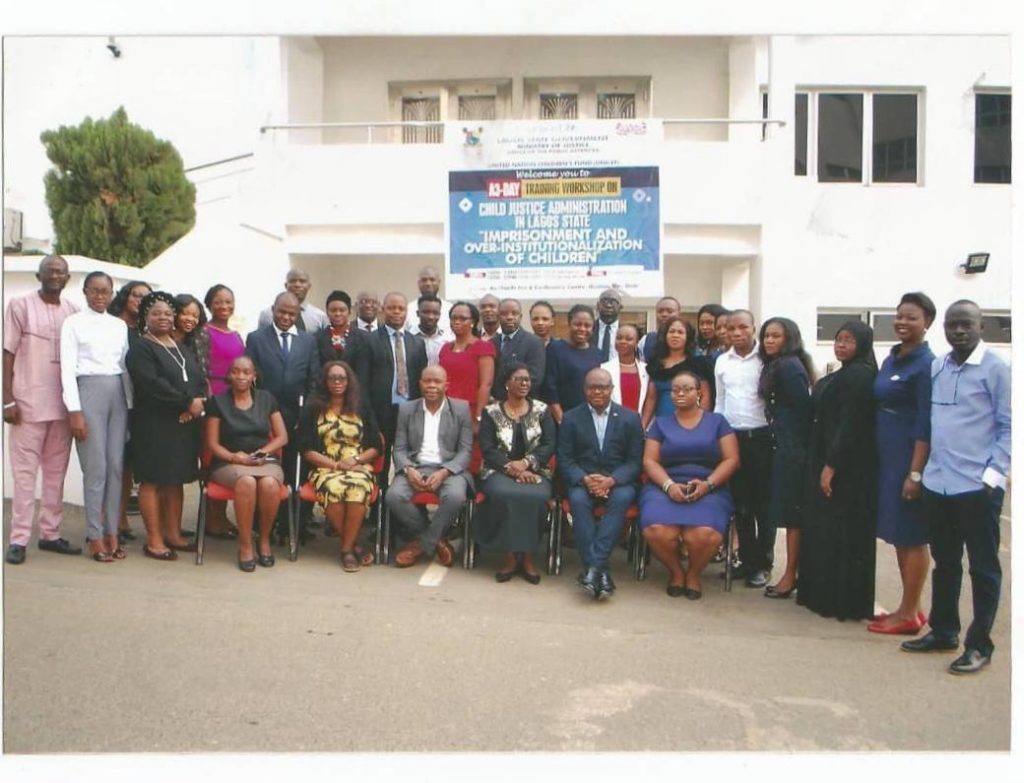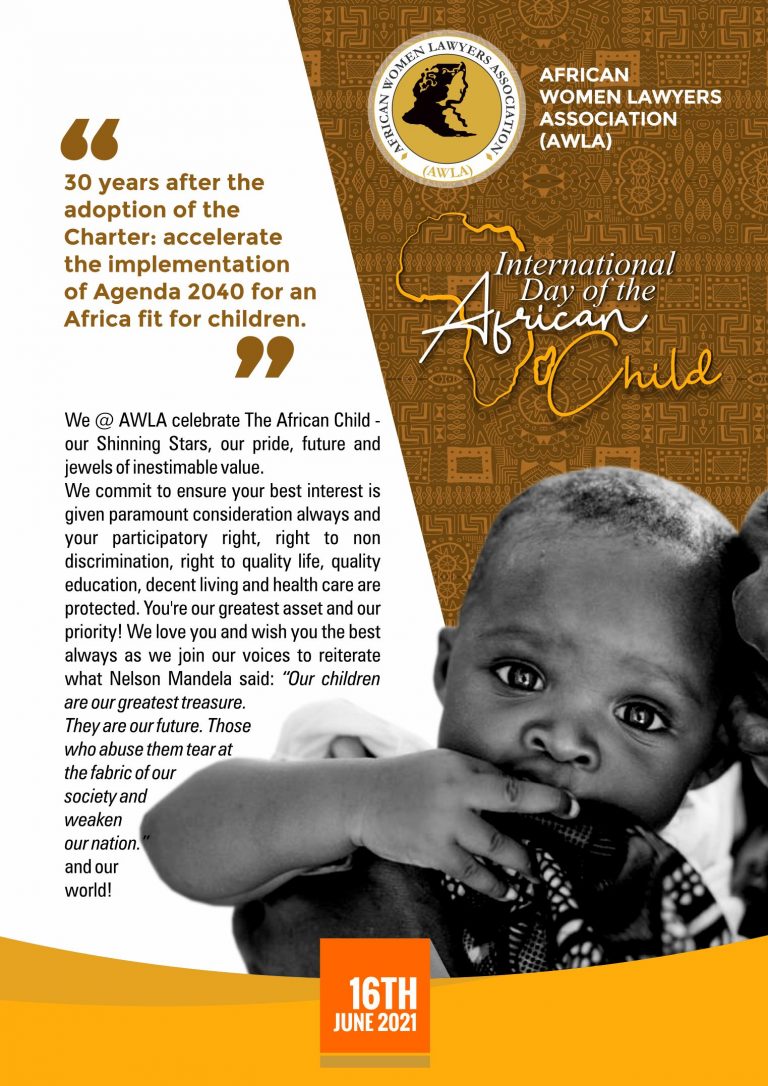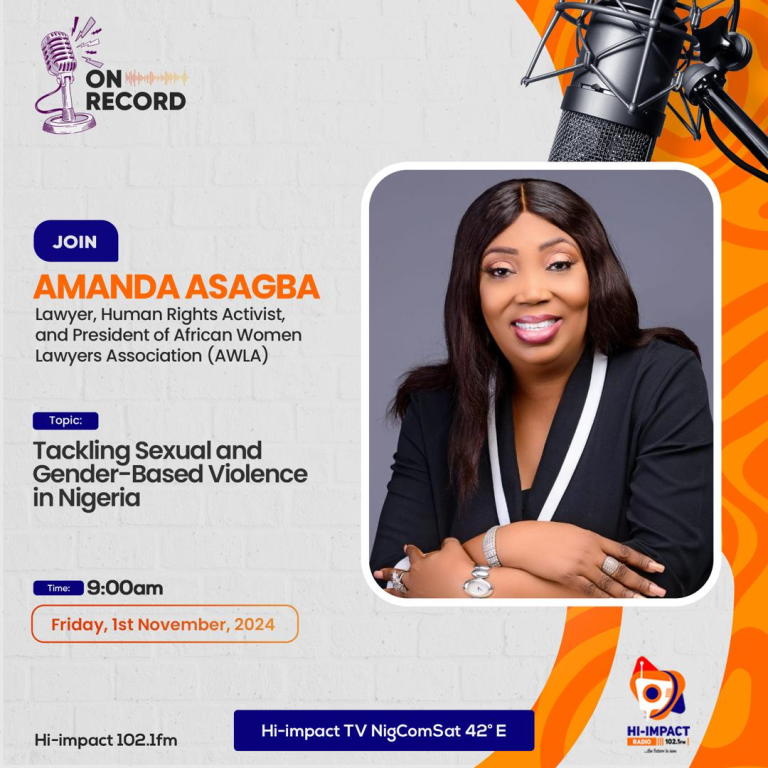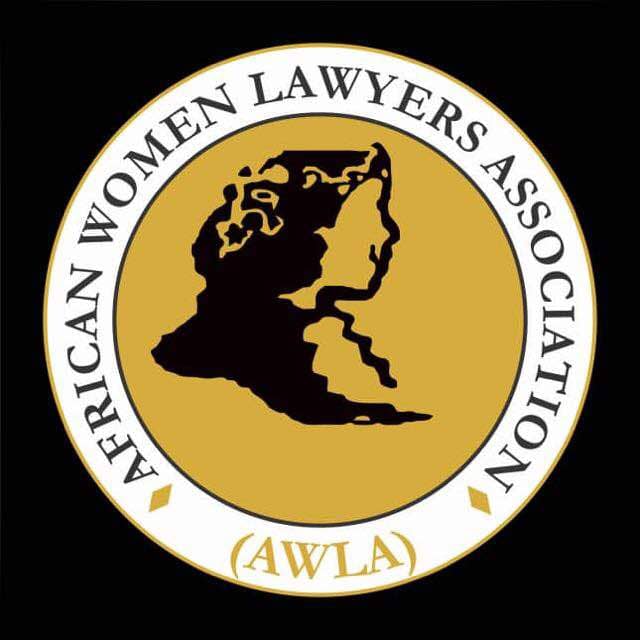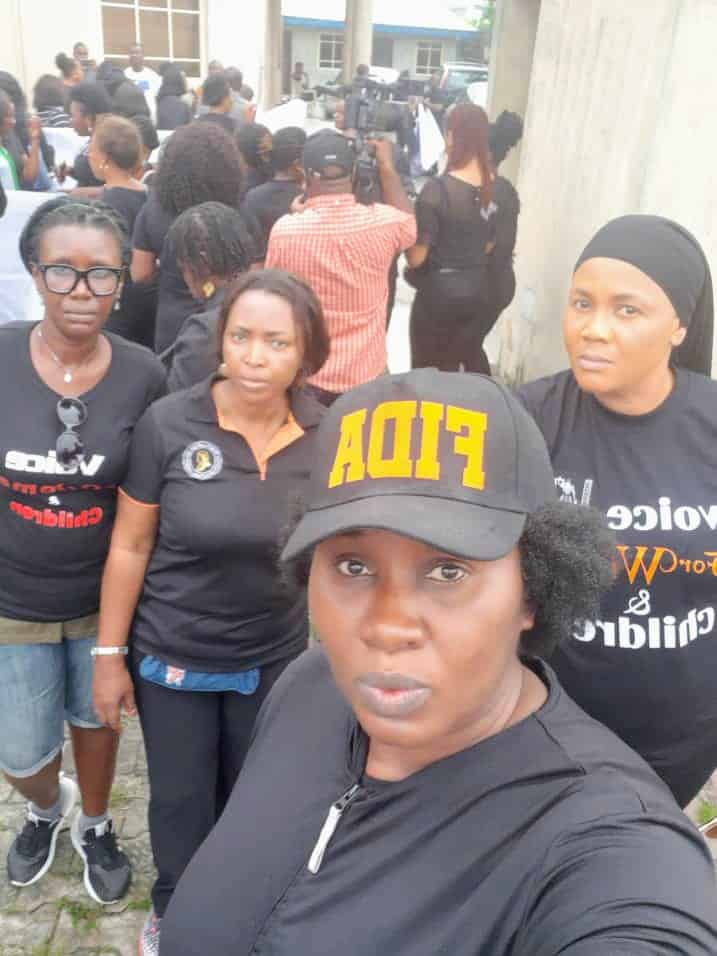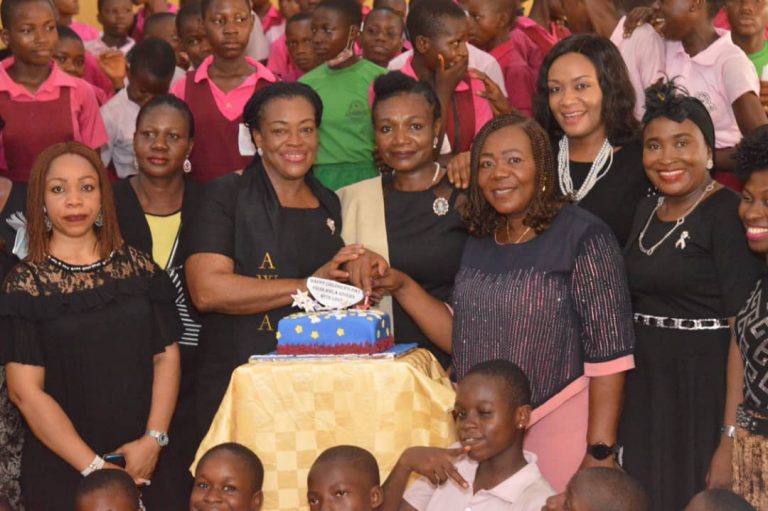OPD and its Quest to Improve Child Justice Administration in Lagos State
The Lagos State Ministry of Justice and Office of the Public Defender, OPD, in conjunction with the United Nations International Children’s Emergency Fund, UNICEF, held a 3-day intensive training workshop on Child Justice Administration in Lagos State which premised on the theme, ‘Imprisonment and Over-Institutionalization of Children’.
The objective of the training was not only to ‘Support independent stakeholders to monitor compliance with child rights standards and Enhance capacity of participants to advocate to police, correctional and police detention institutions for children’s release/referral to the non-institutionalized Community Rehabilitation Programme, CRP’ but equally to ‘Deepen participants’ skills to profile children, determine situations of children in detention and capacity to report their conditions with a view to ensuring that reports are used to secure children’s release/referral from prisons and other inappropriate detention centres’.
The Director of OPD, Mrs. ‘Yinka Adeyemi in her opening remarks while noting that visitation to correctional homes is not enough protection for children in-conflict with the Law, rather she emphasized the need for all participants to utilize the skills garnered from the child protection training to understand the performance of what Child Justice Advocacy entail, so that in the process all can inculcate international best practices in child criminal matters and proffer solutions to glaring challenges in the system.
Dr. Willy Mamah and Mr. Denis Onoise both Child Specialists from UNICEF were able to take participants through the following topics;
- The concept and elements of Child Justice System and the available tools and information required to advocate on issues relating to children.
- Understanding the national legal framework – the primary Law being the Lagos State Child Rights Law 2015, the Nigerian Constitution, Criminal Law, Family Law and the African Charter. Similarly, the application of the Child Justice international framework which addresses child-specific needs and rights such as the UN Convention on the Rights of the Child 1990 especially Articles 2, 3, 6, 12, 37 and 40; Committee on the Rights of the Child (General Comment No.10 2007); UN Standard Minimum Rules for the Administration of Juvenile Justice (Beijing Rules 1985) and the UN Guidelines for the Prevention of Juvenile Justice Delinquency (The Riyadh Guidelines 1990) which thus reflect the underlining principles of the Child Rights Law.
- Underlining Principles of Child Rights Law such as non-discrimination, fair hearing, right to life, prohibition against torture, institutions within the child justice system which includes the police, social welfare office, family courts, correctional centres and prisons; while also presenting an option for treating Child offenders taking into consideration the provision of Section 190 of the Child Rights Law which provides that a child must not be subjected to the criminal justice process or to criminal sanction except to the child justice system and processes set out in the Law. Additionally, Section 195 of the Child Rights Law provides that the Police, prosecutor or any other person dealing with a case involving a child offender shall have the power to dispose of the case without resorting to formal trial by using other means of settlement, including supervision, guidance, restitution, compensation of victims and encouraging parties to settle their case accordingly.
- The concept of therapeutic jurisprudence in child justice administration which means treating children with care and support in accordance with Section 1 of the Child Rights Law therefore the welfare and best interests of the child supercedes at all times.
Thus armed with this child justice knowledge especially directed at those who have the power to influence children’s lives, another aim of this workshop is to change specific policies affecting children and create a conducive political space necessary to improve the lives of children. The goal is to achieve institutional change.
Notably, some challenges were identified such as non-implementation of the cardinal principles of the Child Rights Law under Sections 8 and 196; problem in age determination, overcrowded reformatory institutions, no clear-cut distinction between a detention centre and a holding centre, system failure, lack of legal representation, lack of data collection/ research and several other limitations.
In conclusion, the key highlights that all participants took away were that:
- They were to generally respond to Child needs by ensuring that children in-conflict with the Law or children in-contact with the Law are well represented.
- Delay and denial of justice to children amounts to prosecuting children as adults under the Criminal Justice System instead of the Child Justice System.
- Detention of Child offenders should be the last resort. Such children should not be remanded like adults. Rather it is better to subject them to correctional centres which are facilities that encourage rehabilitation and reintegration.
- Promoting legal education for Magistrates, Police and their Specialised Units, Social workers, Prison officials and Lawyers. That by virtue of children’s vulnerable age, the word ‘arraign’ is not proper for child offenders. Children offenders should be called Children in-conflict with the Law. They should not be taken to regular courts but family courts. They should not be taken to adult prisons as well. They have a right to legal aid and legal representation.
- Exhausting the fundamentals of Social Inquiry Reports (SIR) under Section 205 of the Child Rights Law, as general specification for children in-conflict with the Law.
- Obtaining bail for children; and the implementation of the Lagos State Community Rehabilitation Programme for child offenders, a centre which commenced in 2016 and has UNICEF, Ministry of Justice, Ministry of Youth and Social Development, Police and Prosecutors as Stakeholders. See Sections 193, 194 195, 136-149, Section 201 and Section 234 of the Child Rights Law
It should be noted that OPD is a body established by the Lagos State Government to render free legal services for the less-privileged and oppressed residents of the state with emphasis on the issues threatening the socio-economic rights of the poor as well as other disadvantaged groups such as women, persons in disability, children in-contact and children in-conflict with the Law while UNICEF on its own has been a consistent international advocate of children’s rights, working year round to protect the world’s vulnerable children since 1946.
Reports compiled by Oluwatomi Ajayi, Chairperson Research Committee, African Women Lawyers Association, AWLA, Nigeria. [February 20-22, 2019]
